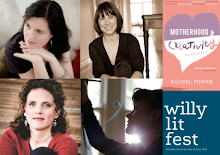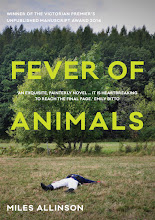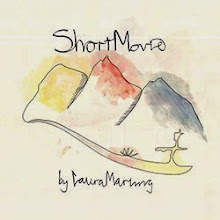
Here I am, late again. I've no doubt the blogosphere went mental for a while there when the English translation of French feminist Elisabeth Badinter's book,
The Conflict: Woman and Mother, was released here last month.
I'm afraid it mostly passed me by this time around, but I did read
this very succinct review from Ruth Quibell in the Fairfax press, who does a great job of summing up a very complex book.
Whatever you think of Badinter's ideas, there's nothing like having a strong, provocative second-wave feminist saying it like she sees it to force us modern feminists to define our own thinking.
Every generation shapes itself in response to the previous one, and it's clear that younger women (meaning women in their 30s and 40s now) have felt the need to reassert the value of mothering.
The question is, in doing this, have we risked losing ourselves all over again, or have we reached a better balance in terms of where we want to put our energies?
I have seen a lot of responses from women agreeing with Badinter that they feel burdened by notions of the "perfect mother". It's true that mothers can be their own (and each other's) worst enemies, with our excessive judgements and our guilt and our intense fears for our children.
But I fear Badinter has all the wrong targets in her sight, particularly the "breast-feeding zealots" and "muesli-crunching ecologists" she blames for driving women back into the home.
Modern women no longer operate with the either/or mentality when it comes to work and family. Most of us are undertaking some combination of paid/unpaid work and parenting, amid our other roles as friends, partners and carers.
No, that doesn't mean we have reached a perfect balance. Women are arguably more stretched, and stressed, than ever. But I think few would blame breastfeeding, co-sleeping and the use of cloth nappies for that.
In fact, rather than being duped by the values of so-called “natural” mothering, as Badinter argues, I'd say women who are making conscious choices about their parenting methods tend to be among the most politically conscious and active people in our communities — in ways that extend well beyond mothering.
For Badinter’s generation, baby formula and disposable nappies might have proven liberating. But younger mothers are engaged with the bigger picture. Petrol-fueled cars have been pretty liberating too; but is that a good enough argument for their continued use into the future?
I've always felt that mothers have the potential to be a powerful political force on the issue of climate change. Who has a greater stake in the future of this planet than the women who are giving birth to the next generation?
Second-wave feminism had good reasons for focusing on women's right to equality in the workplace. And we know the fight for equal pay's not over yet.
But isn't the ultimate goal of realising workplace rights to give women — and ideally men, too — greater choices about their lives? Is it really that surprising that many educated mothers are now making the active choice to stay at home or work part time when their children are small?
The great achievement of feminism is that Western women, speaking generally, no longer feel that becoming a mother is their sole biological destiny, or that as a mother they will be defined primarily by that role.
That doesn't mean that, in having children, women don't discover that being a mother is a meaningful aspect of their identity — for good reasons, as motherhood can be genuinely transformative. The love we feel for our kids isn't inherently oppressive; it can also be a force for change and empowerment on all sorts of fronts.
Badinter's argument that "it remains difficult to reconcile increasingly burdensome maternal responsibilities with personal fullfilment" -- while true for many mothers -- ignores the fact that the two are not always mutually exclusive.
When talking about women's interests, I always feel there is a strong need to separate out the mothering of children and the associated demands of running a household.
In targeting children as the "tyrants" holding women back, Badinter lets the real culprits off the hook: the lack of economic policies supporting real choices for women through access to equal pay, superannuation and quality part-time work, all of which compounds the unequal division of labour in the home.
After all, the years spent breast-feeding, co-sleeping and changing nappies are a mere blip — albeit, a pretty special blip, in my book — in the course of a woman's life.
 Yesterday I got one of those messages in my inbox that makes your heart skip a little beat.
Yesterday I got one of those messages in my inbox that makes your heart skip a little beat.

















